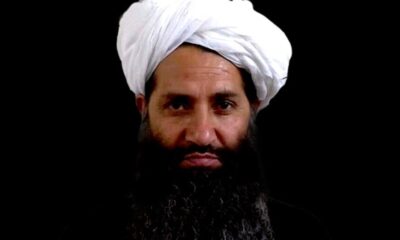Latest News
ARTF endorses new four-year partnership and financing program for Afghanistan
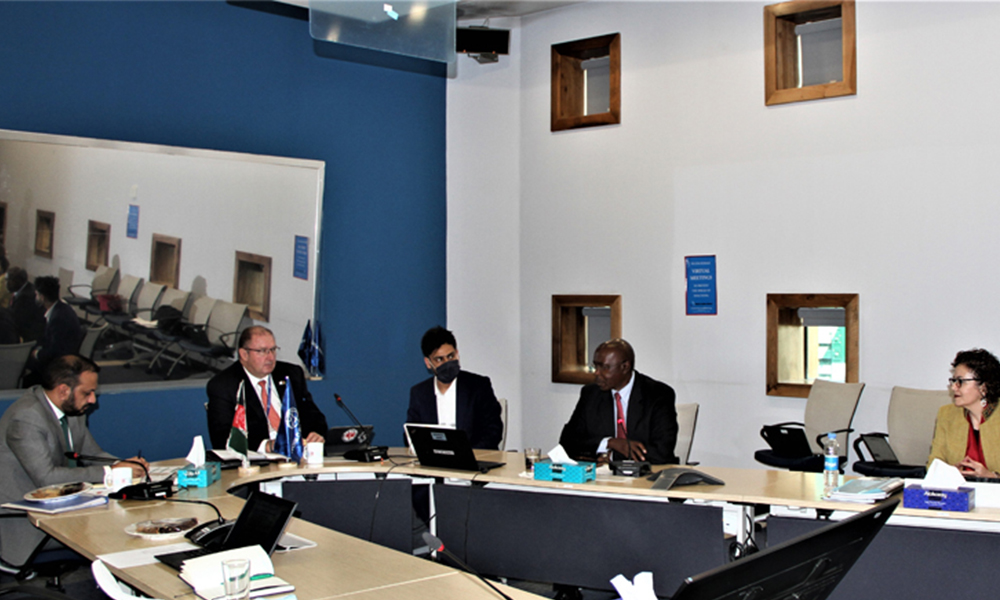
The Steering Committee of the Afghanistan Reconstruction Trust Fund (ARTF), a multi-donor trust fund administered by the World Bank, on Wednesday endorsed a new four-year partnership and financing program for Afghanistan, the World Bank said in a statement.
The program was endorsed at the ARTF’s annual meeting that was co-chaired by Mohammad Khalid Payenda, Acting Minister of Finance of Afghanistan, and Hartwig Schafer, World Bank Vice President for the South Asia Region.
According to the statement, Afghan government officials, ambassadors, and representatives from donor countries, and international organizations, who attended the meeting, discussed how the ARTF will continue to support the Afghan government to advance its development agenda and respond to the negative impacts of COVID-19.
The newly-endorsed Partnership Framework and Financing Program (PFFP) 2021 – 2024 guides ARTF investments and outlines how new donor contributions will support the Afghan government’s development agenda and policies, the statement read.
The new PFFP focuses on six priorities: gender equality, conflict sensitivity, and climate, and it emphasizes strong fiduciary controls in ARTF projects, strategic technical assistance, and close portfolio monitoring to deliver results.
“The ARTF is the main forum for our dialogue with international partners on development and is the key contributor to Afghanistan’s continuing efforts to bring development benefits to our people. ARTF is more important than ever in the current transition, and we very much welcome the international community’s continued support,” Payenda said.
ARTF is a key source of funding for Afghanistan’s national budget and implementation of the second Afghanistan National Peace and Development Framework (ANPDF 2), the statement added.
“Through the ARTF, the Government of Afghanistan works with international partners to reduce poverty, deliver essential services, sustain civilian budget operating costs, and implement critical reforms,” the statement read.
Hartwig Schafer, World Bank Vice President for the South Asia Region, stated: “The ARTF is the World Bank’s largest and longest-standing single-country multi-donor trust fund. As Afghanistan faces severe impacts from COVID-19 and political uncertainty, the ARTF continues to be instrumental in helping the government maintain the delivery of public services to the Afghan people.”
“Today’s meeting sent a strong signal that the World Bank and ARTF donors will continue to stand with the people of Afghanistan at this critical time and protect hard-won gains achieved in the past 20 years,” he said.
Developed in coordination with ARTF donors and the Afghan government, the new PFFP adjusts ARTF programs to Afghanistan’s fast-changing context and aligns with the ANPDF 2 and the Afghanistan Partnership Framework principles endorsed at the 2020 Afghanistan Conference, while remaining a flexible and adaptable instrument.
“The Afghan government and the international community need to work together to help the country recover from the COVID-19 pandemic and achieve progress in the coming years,” said Henry Kerali, World Bank Country Director for Afghanistan.
“The World Bank Group remains committed to working with the Government of Afghanistan and its partners to ensure continued service delivery to the people of Afghanistan in these difficult times,” he added.
The ARTF Steering Committee also endorsed the Country Portfolio Performance Review that has helped ARTF donors identify challenges and opportunities in Afghanistan while developing the ARTF programs for the coming years.
Latest News
Afghanistan-Iran-Europe railway corridor activated

The Iranian Embassy in Kabul announced on Thursday that the Afghanistan-Iran-Europe railway corridor has become operational.
In a statement, the embassy said the first export shipment from Afghanistan has started its journey through the Afghanistan-Iran railway corridor to Turkey and Europe.
The corridor was activated with the presence of the Iranian Consul General in Herat and the governor of the province, the statement read.
The statement added that the activation of this corridor, with Iran’s cooperation, will contribute to the improvement of Afghanistan’s economy.
Latest News
Amnesty international urges Pakistan to halt Afghan deportations
Amnesty International said that all Afghan nationals are required to leave the cities of Islamabad and Rawalpindi by 31 March
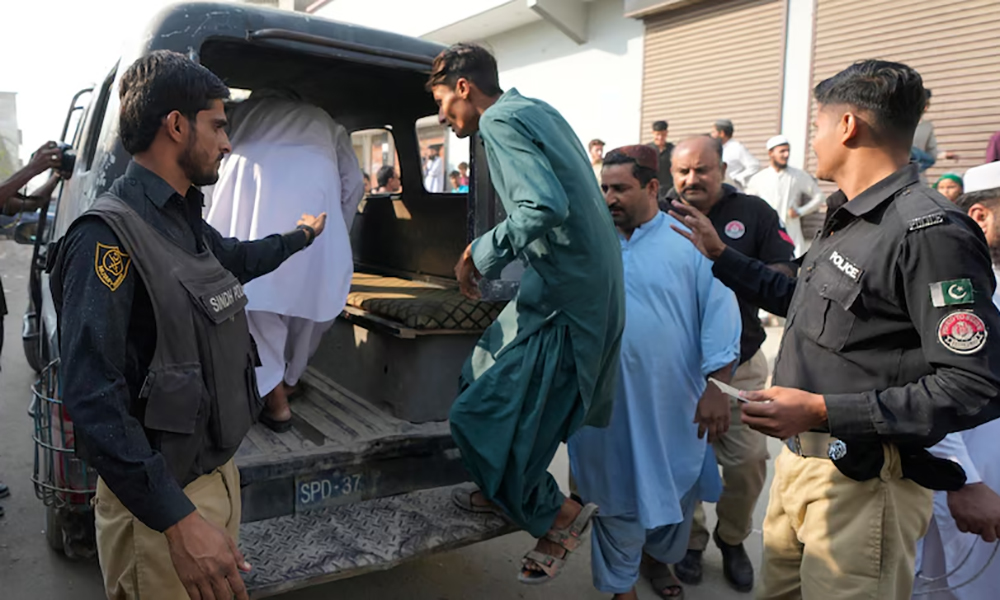
Amnesty International on Wednesday called on Pakistan to immediately withdraw its “Illegal Foreigners Repatriation Plan”, which primarily targets Afghan refugees, ahead of the authorities’ 31 March deadline.
Pakistani government has asked all “illegal foreigners” and Afghan Citizen Card holders to leave the country before March 31, warning they would otherwise be deported from April 1.
Amnesty International said that all Afghan nationals are required to leave the cities of Islamabad and Rawalpindi by 31 March
It said that “arbitrarily and forcibly expelling Afghan nationals, including refugees and asylum seekers, will only add to their plight”.
“The Pakistani government’s unyielding and cruel deadline, which is less than a week away, to remove Afghan refugees and asylum seekers from two major cities, resulting in the deportation of many at risk, shows little respect for international human rights law, particularly the principle of non-refoulement,” said Isabelle Lassée, deputy regional director for South Asia at Amnesty International.
The exact details of the Pakistan government’s ‘Illegal Foreigners Repatriation Plan’ used for deportations has never been made public, but it comes amid a campaign to wrongfully demonize Afghan nationals as so-called criminals and terrorists, Amnesty said.
Isabelle Lassée said that the Pakistani government is only making “a scapegoat of a community that has long been disenfranchised and fleeing persecution.”
Human rights lawyer Moniza Kakar pointed out that forcing Afghan refugees to relocate even within Pakistan is devastating for families. “Many PoR card holders are people who’ve been here for decades, asking them to relocate means you’re asking them to leave homes, businesses, communities and lives they’ve built for years,” she said.
Lawyer Umer Gillani, who has challenged the deportation orders in Pakistan’s Supreme Court and Islamabad High Court, argued that the March 31 deadline was not legally enforceable. “The official notification has not been issued under any particular law; it is just an executive instruction,” he stated.
Meanwhile, the International Organization for Migration (IOM) reported a sharp decline in Afghan returns and deportations during the first half of March. Between March 1 and 15, returns dropped by 67 per cent, while deportations fell by 50 per cent compared to the previous reporting period (February 16-28).
Latest News
IEA leader congratulates Afghans on Eid ul-Fitr
The IEA leader also strongly condemned the Israeli military strikes against the “oppressed and defenseless” Palestinians as a “great injustice and barbarity.”
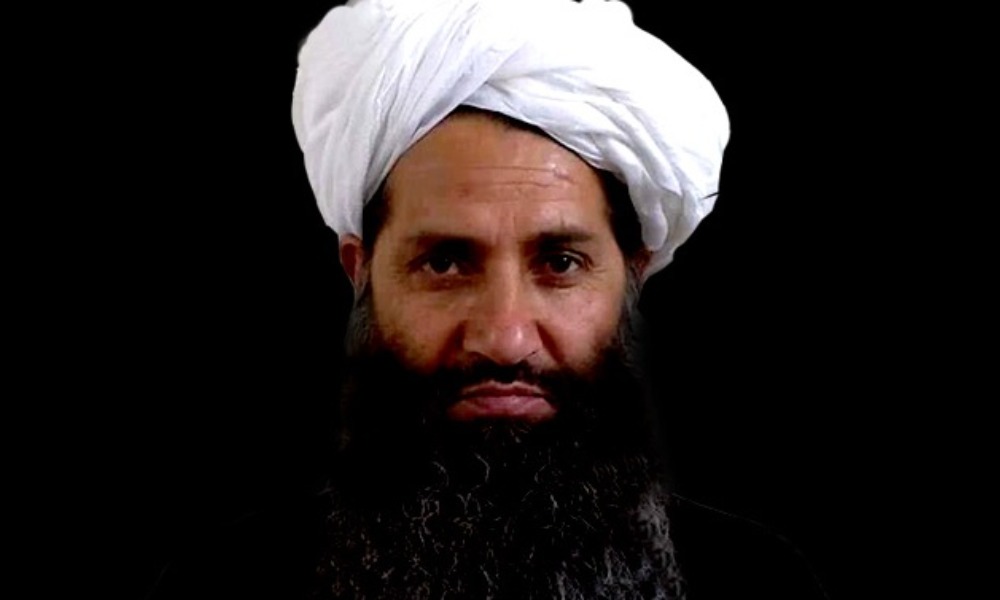
Supreme leader of the Islamic Emirate of Afghanistan (IEA), Mawlawi Hibatullah Akhundzada, congratulated the Afghan people on the occasion of Eid ul-Fitr, calling on them to be strong in their beliefs and not to follow the path of Satan.
In his Eid message, released on Thursday, Mawlawi Hibatullah stated, “Dear Muslim brothers! let us renew our commitment to Allah, the Almighty, and strengthen our resolve to avoid His disobedience and not follow the path of Satan.”
He asked Afghans to thankful to Almighty Allah for security across the country.
“There was a time when on this very day, the funerals of our Afghan brothers were carried out, bombs fell upon us, our homes were searched, and we were dragged into prisons. But now, thanks to Allah, this day has transformed into one of peace and security,” he said.
IEA’s supreme leader reiterated the Islamic Emirate’s resolve to implement Shariah law, instructing courts to ensure judicial rulings adhere strictly to Islamic laws. The message again reiterated that implementing Shariah was a fundamental objective of the Islamic Emirate’s jihad and sacrifices.
On education, Mawlawi Hibatullah said that the educational institutions are tasked with giving serious attention to the correction of beliefs and actions across all educational sectors, aligning their curricula with Sharia, and providing proper training and education to the youth.
Additionally, he cautioned against “harmful propaganda spread by hostile intelligence agencies, who seek to sow despair or create unnecessary concerns about poverty and economic challenges.”
“The Islamic Emirate, with the help of Allah Almighty, is doing all it can to improve your lives.”
Condemnation of Israeli Attacks on Palestine
The IEA leader also strongly condemned the Israeli military strikes against the “oppressed and defenseless” Palestinians as a “great injustice and barbarity.”
“We support the legitimate demands of the Palestinian people and urge the rest of the Islamic world to, as much as possible, support the Palestinians, so they can regain their usurped rights, be freed from the oppression and aggression of the Zionist regime, and put an end to the ongoing atrocities and injustice there,” he said.
-

 International Sports4 days ago
International Sports4 days agoRCB bring fireworks to opening night of IPL 2025
-
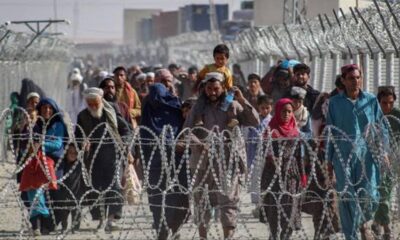
 Latest News4 days ago
Latest News4 days agoTorkham border reopens for pedestrians
-
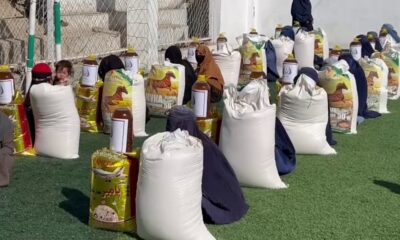
 Latest News4 days ago
Latest News4 days agoBayat Foundation distributes food aid to dozens of needy families in Balkh
-

 International Sports3 days ago
International Sports3 days agoIPL 2025: Sunrisers on a batting rampage; triumph over Rajasthan Royals
-
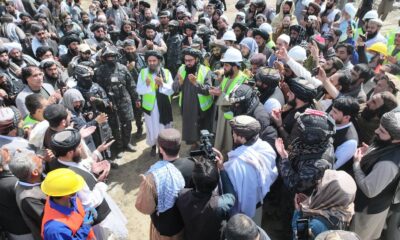
 Business4 days ago
Business4 days agoDeputy PM inaugurates launch of Arghandi Transport Terminal Project in Kabul Province
-

 Latest News3 days ago
Latest News3 days agoEU says girls’ education crucial for Afghanistan’s long-term prosperity
-

 Sport3 days ago
Sport3 days agoACB names Afghanistan A squad for tri-nation series
-
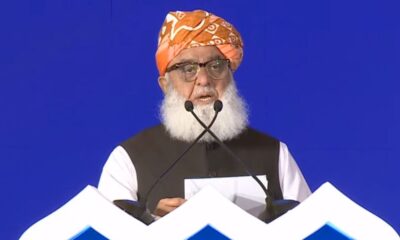
 Latest News4 days ago
Latest News4 days agoPakistan’s mistakes played significant role in rise of terrorism: Maulana Fazl-ur-Rehman










